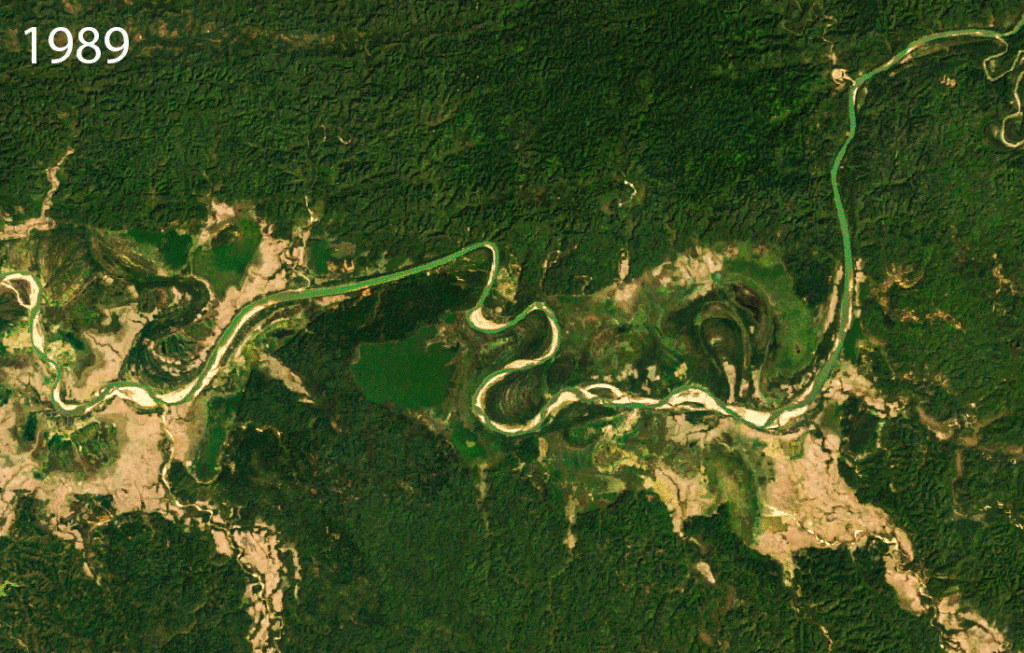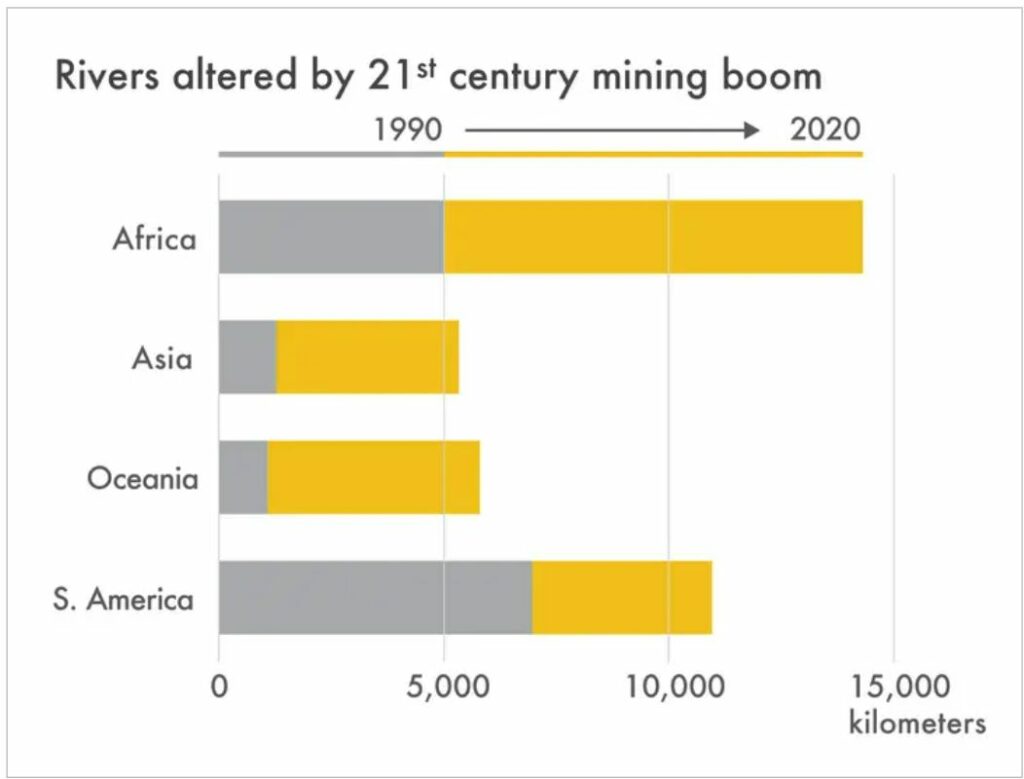Gold has become a new problem now
Tropical river systems in 49 nations are experiencing degradation due to mining for gold and minerals, as revealed in a recent study conducted by Dartmouth. This research, which appeared in Nature, uncovers the global ramifications of river mining on hydrological dynamics for the first time.
These mining endeavors usually entail extensive digging, leading to deforestation and greater erosion. Excavated substances often find their way into rivers, affecting both local and downstream aquatic ecosystems.
This debris, consisting of clay, silt, and sand particles, flows as “suspended sediment,” transmitting the ecological consequences of mining further downstream. Past studies have revealed that harmful toxins like mercury, used in mining processes, might accompany this sediment, contaminating water sources and posing risks to both the environment and human health.
Evan Dethier, the main author and an assistant professor at Occidental College, noted, “For hundreds, if not perhaps, thousands of years, mining has been taking place in the tropics but never on the scale like we’ve seen over the past two decades.”
He emphasized that “The degradation of rivers from gold and river mining throughout the tropics is a global crisis.”
In the research’s first phase, the team meticulously assessed river mining in the tropics from 1984 to 2021. Their sources included media articles, literature, mining company files, social platforms, satellite images from Landsat 5, 7, and Sentinel-2, and aerial photos. Their analysis of over 7.5 million river measurements identified mining locations and their environmental impacts.
The data highlighted nearly 400 unique mining regions in 49 tropical nations, predominantly near the equator in continents like South America, Africa, Asia, and Oceania. Notably, 60% of these sites emerged post-2000, and 46% after 2006, paralleling the global financial crisis. This upward trend persisted during the COVID-19 pandemic.

In the study’s subsequent phase, the influence of mining on suspended sediment levels in 173 tropical rivers was gauged. They detected sediment transportation using Landsat data and proprietary algorithms developed over seven years.
The findings illustrated that approximately 6% of the world’s 500,000 kilometers of tropical rivers are impacted by mining. Additionally, suspended sediment levels have doubled in most studied rivers compared to before mining activities began.

Dethier further explained, “These tropical rivers go from running clear either throughout the year or at least through part of it, to either being choked with sediment or muddy year-round.” Sediments from mining sites were found to travel between 93 to 746 miles downstream on average.
“We found that almost every single one of these mining areas had suspended sediment transmitted downstream, on average, at least 150 to 200 kilometers (93 to 124 miles) from the mining site itself but as much as 1,200 kilometers (746 miles) downstream.
“To give you an idea of how far the sediment can travel downstream, this is nearly comparable to the distance from Bangor, Maine, to Richmond, Virginia.”
In countries with extensive river systems and active mining operations, up to 57% of the large rivers’ lengths are affected by mining. Notable examples include French Guiana, Guyana, Cote d’Ivoire, and Senegal.
David Lutz, the study’s senior author, added, “Many of these tropical rivers systems are very biodiverse places, if not some of the most biodiverse places on Earth and are still currently understudied.
“The challenge here is that there are many species that could potentially become extinguished before we even knew that they existed.”
When assessing the ecological repercussions, the team applied U.S. environmental management benchmarks to their dataset. They discovered that the majority of the rivers surpassed guidelines for fish protection, indicating increased river murkiness.
Lutz mentioned: “When rivers and streams experience high levels of suspended sediment, fish are unable to see their prey or predators, and their gills may become choked with sediment and damaged, which can lead to disease or even mortality.”
Miles Silman, a co-author, added, “Our team’s prior work has reported on how gold mining is a problem in the Madre de Dios region of the Peruvian Amazon, by poisoning wildlife and people.
“While gold mining has a lot of potential to lift people out of poverty, particularly on remote tropical frontiers, the way it is done now comes at a tremendous societal cost from environmental degradation, mercury pollution, and corruption and criminal networks.”
Southeast Asia sees the mining of nickel in countries like Indonesia, the Philippines, and Malaysia. Essential minerals for electronics and batteries, such as cobalt, coltan, tungsten, and tantalite, are predominantly mined in the Democratic Republic of the Congo.
Dethier concluded by emphasizing “These minerals are becoming increasingly necessary as we transition away from fossil fuels to clean energy,” says Dethier. “So, this is an important area to keep track of.”.”
Source: 10.1038/s41586-023-06309-9
Image Credit: Getty
